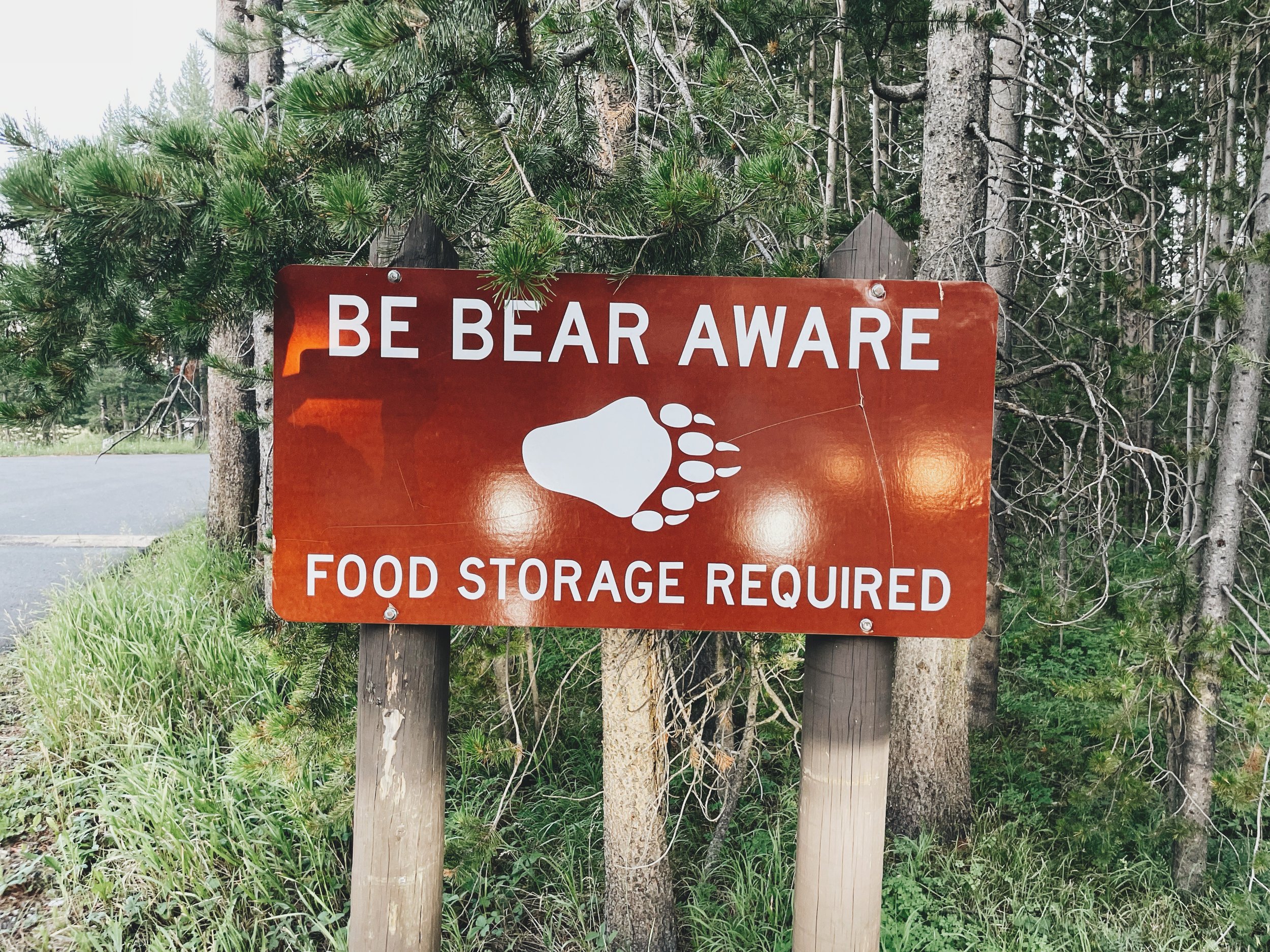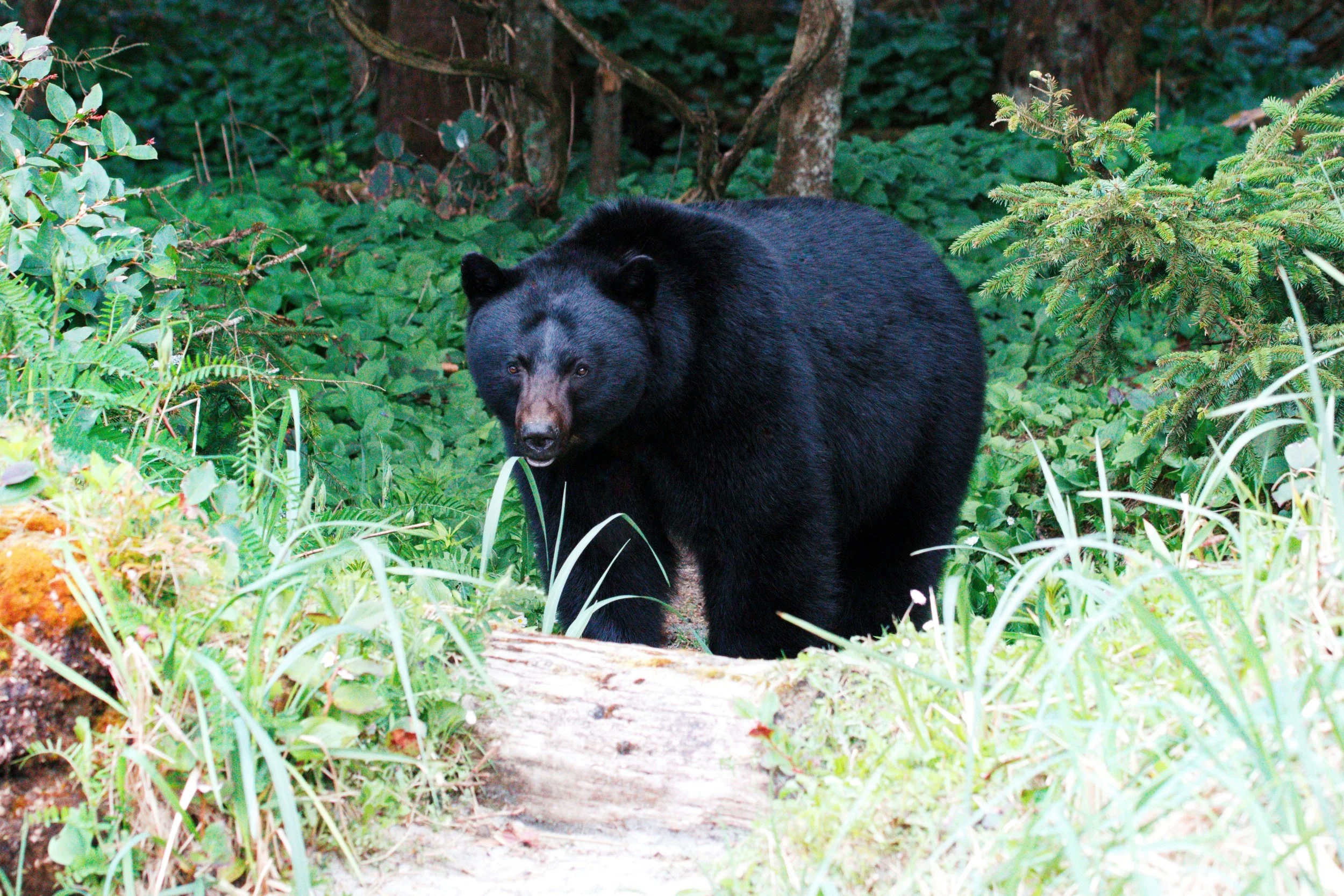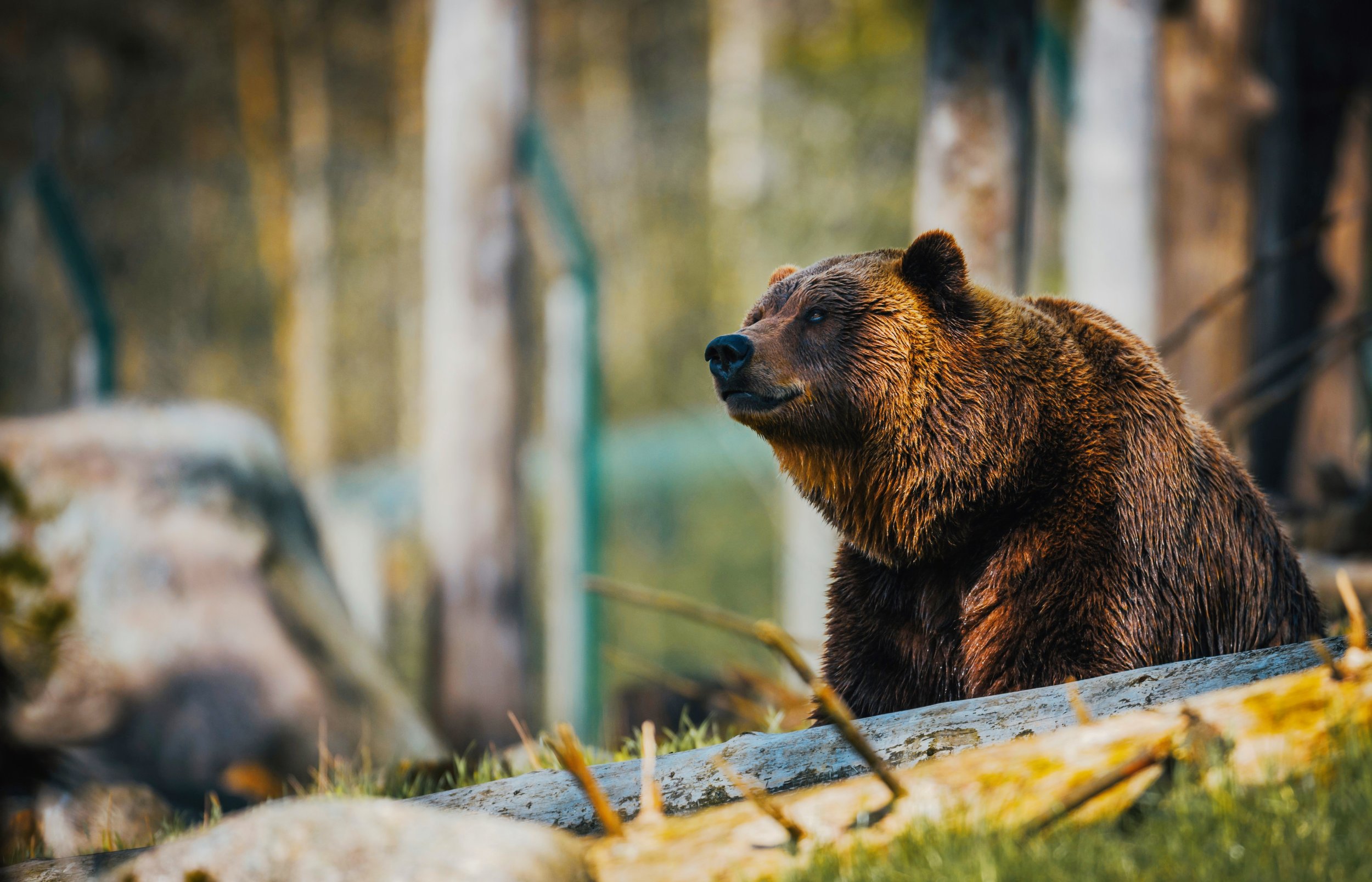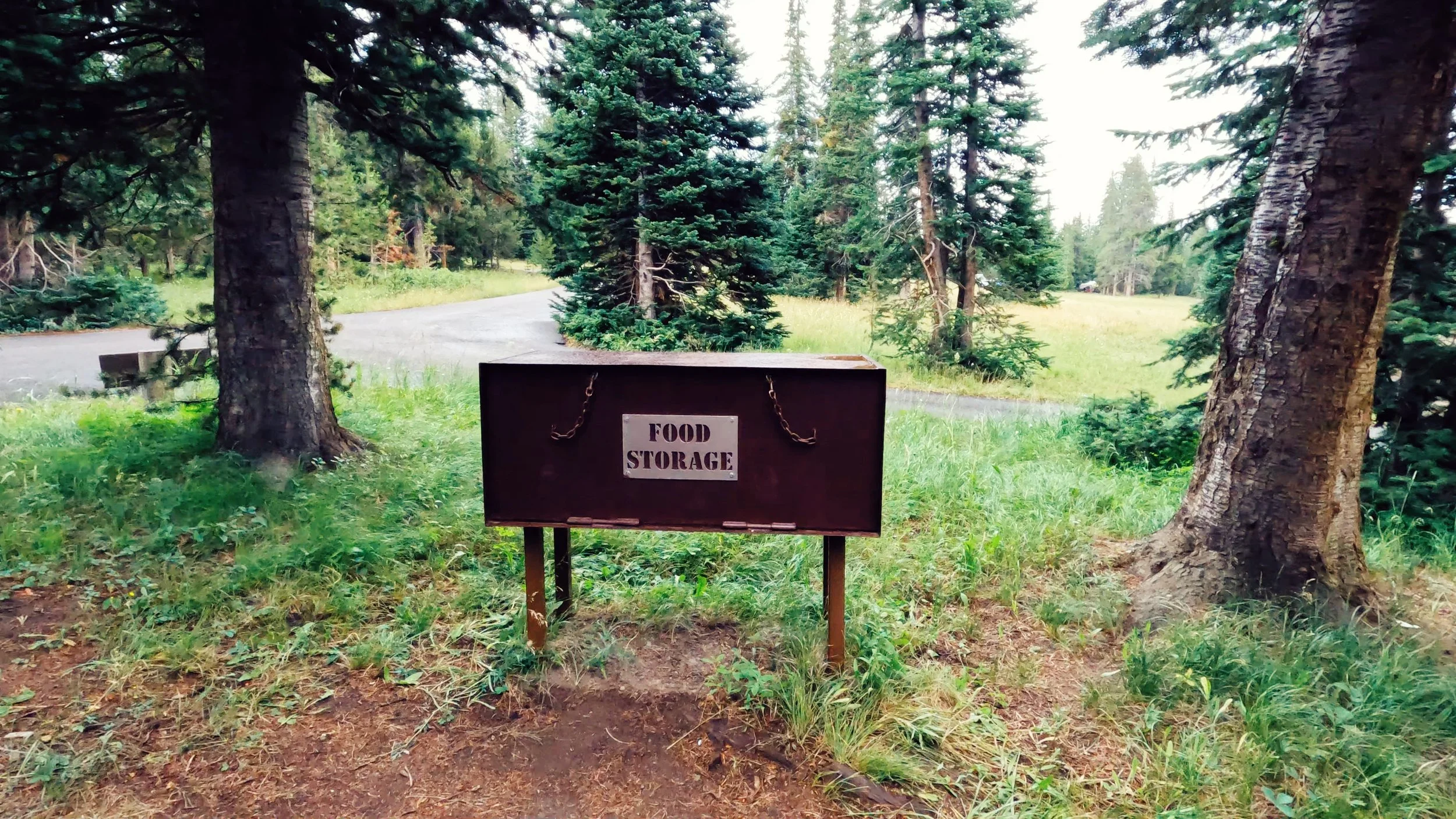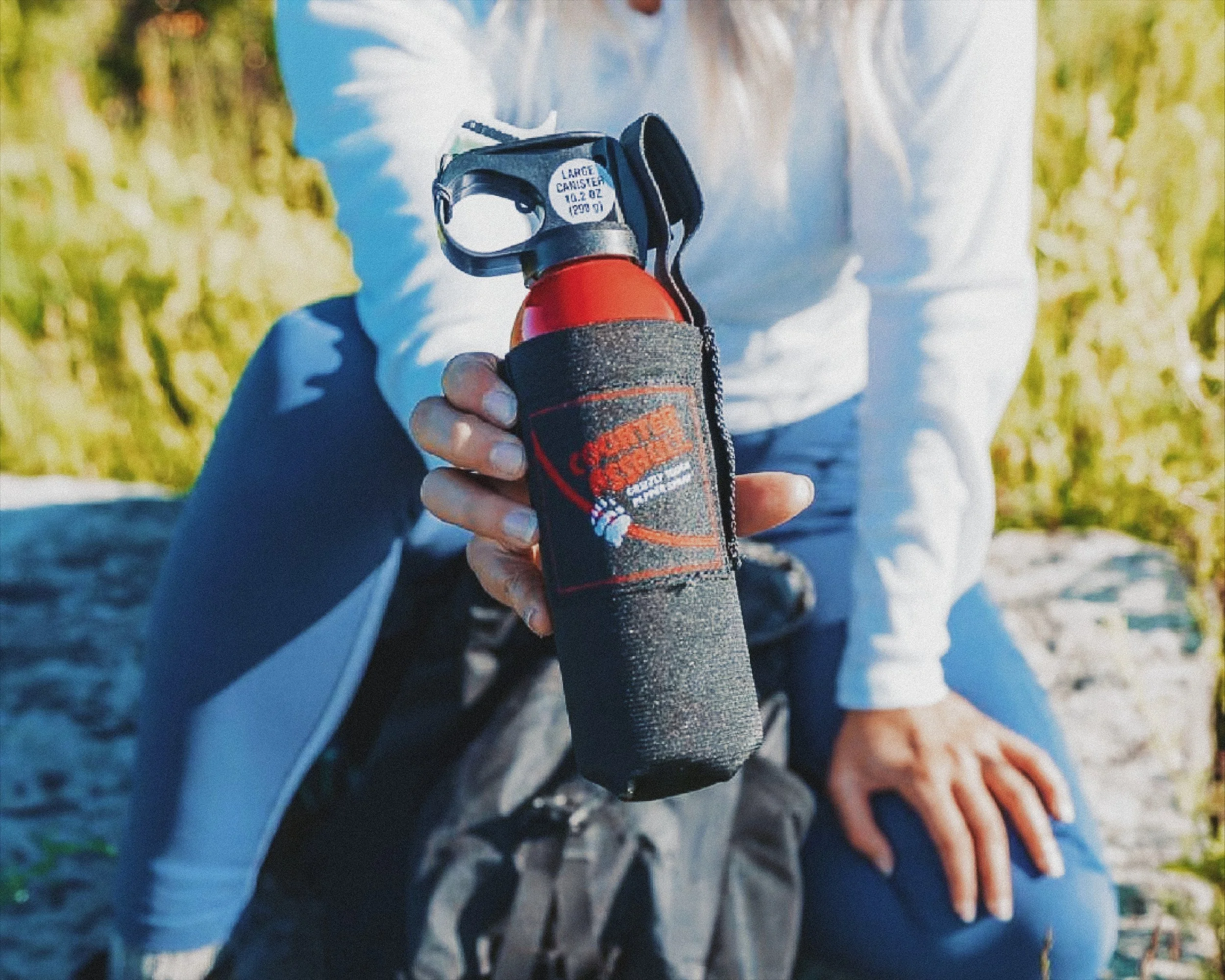Bear Aware: How I Stay Safe at Camp in Bear Country
Overland Girl earns commissions on purchases made through links on this site. All reviews and recommendations reflect our personal experiences. Your support allows us to keep providing valuable content. Thank you!
Sign posted in Yellowstone near our campsite.
Bear Country Basics: Know Where You're Camping
There’s a big difference between black bears and grizzlies—and how they typically behave around people.
Black bears are more common than you think—and they’ll go after food left out at camp.
Black bears are found in many parts of the U.S., especially in forested areas like the Smokies, Appalachians (including parts of North Carolina), Sierra Nevada, and parts of the Rockies. They’re usually shy and avoid people, but they’ll absolutely go for your food if it’s not stored properly.
Grizzly bears, also called brown bears, are more common in parts of Montana, Wyoming, Idaho, and Alaska—especially in places like Yellowstone, Glacier, and Grand Teton. They’re more powerful and protective, especially females with cubs, and can be more aggressive if surprised or provoked.
Grizzlies are bigger, more powerful, and far less tolerant of surprises—especially moms with cubs.
It’s important to know which kind of bear you might encounter, because it affects how you store your gear, hike, and respond if you see one. Before I head out, I always check whether I’m in black bear or grizzly territory. Many national parks, state parks, and national forests have alerts or regulations posted online. Some require bear-proof canisters or prohibit certain types of food storage. Local rules always win over general advice.
What Attracts Bears (And How I Manage It)
Bears have an extreme sense of smell—some experts say up to seven times better than a bloodhound. That means it's not just your food that attracts them. Anything scented—lip balm, sunscreen, deodorant, drink mixes, even unopened packaged goods—can draw attention if left out. I never thought toothpaste would be an issue until I went camping in Yellowstone and educated myself on bear safety.
I make it a habit to store all scented items out of my tent and out of sight. This includes:
All food (even sealed bars or freeze-dried meals)
Toothpaste and toothbrush
Sunscreen, bug spray, lip balm
Cookware, utensils, and food wrappers
Then I follow a few simple rules that keep scent and attractants under control:
I use odor-proof bags inside my canister or storage sack
I never cook near my tent—kitchen stays 100 ft away, even on short trips
I clean cookware immediately and store it with other scented gear. If the campground provides a bear box, I use it. But not every site has one, especially if you’re in the backcountry.
This was our bear box at Bridge Bay Campground in Yellowstone
My Bear Safety Kit
Here’s the gear I bring when I know I’ll be in bear country—whether it’s a developed campground or somewhere more remote:
Storage Solutions
BearVault Bear Canister – Lightweight, certified, and easy to stash in a bin or backpack. The certification is ideal.
Ursack Bear-Resistant Food Containers – A lighter option when I don’t want to carry a full canister. Tough, flexible, and can be hung or stored safely.
Smelly Proof Reusable Heavy-Duty Storage Bags – I use these inside whatever container I pack. They help reduce scent trails that attract bears.
Protection
Bear Spray – I bring bear spray anytime I’m in grizzly country, and sometimes even in black bear zones if the area is remote. It stays in an easy-to-grab holster near the tent at night and on my hip during hikes.
Counter Assault bear spray in a holster held in hand, ready for use on the trail or at camp.
Backup for Hanging
I haven’t done dispersed camping—where you’d typically hang your food between trees—but I carry a setup just in case. Some remote spots don’t have bear boxes or canister requirements, and in those cases, a dry sack and paracord still do the job.
→ Shop REI Co-op Pack-Away Dry Sack
A Few Camp Habits That Make a Difference
I change clothes after cooking and store the cookware away from camp.
I keep a clean camp—no wrappers, scraps, or unsealed items.
I never leave food unattended, even for a quick hike.
Want to see everything I use at camp?
Recap: Bear-Safe Camp Habits
Use a bear-proof canister, sack, or campground bear box
Store all scented items outside the tent
Keep bear spray within reach
Cook away from your sleeping area
Stay informed on local regulations
More from This Camp System Series
→ My Tent Setup with Snow Peak
→ Why the Snow Peak Mini Hozuki Is Always in My Camp Kit

